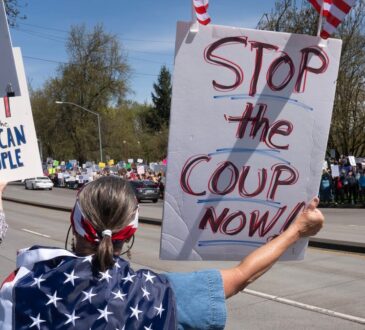
Stocks opened comfortably higher Friday but ran out of steam as the session wore on. Still, an ongoing rally in several mega-cap stocks kept the Nasdaq Composite green into the close. The S&P 500 drifted into negative territory late in the session, and the blue chip Dow Jones Industrial Average finished in the red as McDonald’s continued to struggle.
By the numbers, the Nasdaq added 0.6% to 18,518. The S&P 500 shed 0.03% to 5,808, and the Dow fell 0.6% to 42,114, as MCD slumped 3%. The fast-food giant ended with a weekly loss of 8% after the Centers for Disease Control and Prevention (CDC) said it’s investigating an E. coli outbreak linked to McDonald’s Quarter Pound burgers.
Capri Holdings (CPRI) was another noteworthy decliner Friday, cratering 49% after a U.S. judge on Thursday blocked the luxury retailer’s proposed merger with Michael Kors parent Tapestry (TPR, +14%).
Sign up for Kiplinger’s Free E-Newsletters
Profit and prosper with the best of expert advice on investing, taxes, retirement, personal finance and more – straight to your e-mail.
Profit and prosper with the best of expert advice – straight to your e-mail.
The companies argued that “handbags are nonessential items whose price consumers can control by not buying them if they become too expensive,” which the judge said “ignores that handbags are important to many women, not only to express themselves through fashion but to aid in their daily lives,” according to Reuters.
Capri and Tapestry said they intend to appeal the ruling.
Deckers soars after beat-and-raise quarter
On the plus side of the ledger, Deckers Outdoor (DECK) surged 11% after the footwear maker beat top- and bottom-line expectations for its fiscal second quarter and raised its full-year revenue and profit forecast.
“With products continuing to resonate extremely well, deep innovation pipelines for both brands, still-low-but-building brand awareness abroad and management’s thoughtful approach to marketplace segmentation, we think DECK is well-positioned to maintain a robust growth trajectory,” says Truist Securities analyst Joseph Civello.
Civello adds that “Hoka’s continued outperformance and the success they are seeing from higher-price-point franchises strengthens our conviction on long-term margin expansion opportunities.”
Apple gets downgraded ahead of earnings
Elsewhere, Apple (AAPL) rose 0.4% even after KeyBanc analyst Brandon Nispel downgraded the tech stock to Underweight (equivalent to a Sell) from Standard Weight (equivalent to a Hold).
Nispel thinks customers will favor buying the new lower-priced iPhone SE model, which is expected to launch in early 2025, over the costlier iPhone 16, according to Barron’s. This “could possibly be cannibalistic to iPhone 16 sales,” he says, adding that a successful launch of the iPhone SE would lead to an increase in iPhone units sold but a decline in average selling prices.
The downgrade comes just ahead of Apple’s appearance on the earnings calendar after next Thursday’s close. For its fiscal fourth-quarter results, analysts forecast earnings of $1.55 per share, up 6.2% year over year (YoY), on revenue of $94.4 billion (+5.5% YoY).
Durable goods orders fell in September
In economic news, the Census Bureau said this morning that new orders for durable goods decreased 0.8% in September. Excluding defense, new orders were down 1.1%.
“Demand for durable goods remains weak,” says Shannon Seery Grein, economist at Wells Fargo. But with interest rates declining and the presidential election soon behind us, “businesses may soon have the certainty they need to support capital investment,” she adds.
The University of Michigan said its Consumer Sentiment Index rose to 70.5 in October from 70.1 in September, marking its third consecutive month of gains and its highest level in six months.
“Despite rising concerns about income growth and employment, consumers feel confident that inflation is easing,” says Jeffrey Roach, chief economist at LPL Financial.
Roach notes that investors are now looking ahead to next Friday’s jobs report. A stronger-than-expected print “could force the Fed to hold at the upcoming meeting, although that’s not our base case,” he says.



